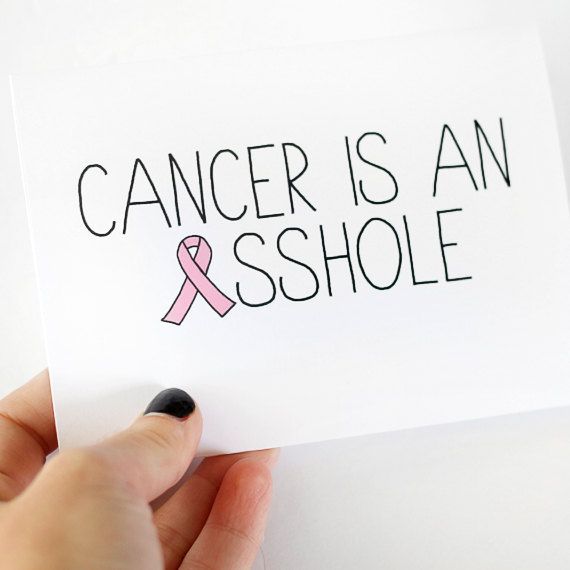As many of you know, my grandmother was diagnosed with cancer over the holidays. Maneuvering through the early part of Grandma’s cancer journey was a whirlwind- countless doctors’ appointments and medical procedures- but one constant that got us through it was the incredible support from others. The care and concern of our friends and family helped give us the feelings of hope and love during a difficult time.
A handful of well-intentioned people also said some pretty lame-o things to us. Knowing what to say to a person just diagnosed with cancer, and their family, can be difficult. I know they didn’t mean what they said or maybe they just have mouth diarrhea, but their words stung. I’m writing this article not under the pretense that I’m now an expert in the field of cancer, but as a person who experienced a wide array of responses to her grandmother’s cancer. This also isn’t an attempt to shame anyone; I’m hoping it will give a little bit of insight to those wanting to say the right thing. I myself often didn’t know what to say to someone affected by cancer, but my recent crash course helped.
1.) Don’t blame them for their cancer.
This might seem like a no-brainer, but yes, we actually heard this. My grandma has lung cancer and she was a smoker over twenty years ago. When we told people about her lung cancer, a few people said, “Well, she smoked, didn’t she?” Even when we asked her oncologist if her lung cancer was smoking-related and he said no, one friend told us the oncologist was wrong.
When something bad happens to a person, we want to find a reason why. If a person smoked, or didn’t treat their bodies well, we have to assume that is the reason why they developed cancer (or any other ailment). Even if that person makes a healthy change in their lives, we still want to assume it was their prior behavior that caused their issue. Whether or not it did, it’s not up to us to judge or point fingers. People diagnosed with cancer aren’t stupid. In the back of their minds, they may already be thinking, “Shit! Did that ten years of smoking cigarettes in my twenties cause this?!”
2.) Don’t tell them that they have “bad cancer.”
Some types of cancers and their stages have better prognoses than others, but it’s not up to us to tell cancer patients whether or not their cancer is bad or good. Leave it up to their doctor to tell them. Telling them that they have “bad cancer” can lead to unnecessary stress and fear; telling them that they have “good cancer,” as my friend pointed out, is just silly. No cancer is good! Try to stay away from saying comments like this, and just focus more on offering words of hope and support.
3.) Don’t tell them their treatment is going to be crappy.
“Oh, I heard treatment for lung cancer is awful!” We heard this from a couple of friends and acquaintances. Cancer patients are already scared; they don’t need unsolicited negative opinions from people who aren’t medical professionals. Just know that when you say something like that, it can have a huge impact.
4.) Don’t tell them what they should do.
I know for my family, hearing the stories of other survivors and their unique treatment plans was helpful and encouraging. Every person and cancer is made differently and selecting a treatment plan that is best for you is a very daunting task. Unless you’re a doctor, don’t try to talk your friend or family member in or out of one type of treatment. Cancer is confusing enough as it is. I would argue that it’s ok to share your opinions, but don’t beat the person over the head with them.
5.) Stay positive and hopeful.
This comes down more to personal preference, but I know for us, we wanted to hear words of hope, encouragement, love and support. I’m all for speaking your mind, but cancer is not the time to do that. You know what cancer survivors and their families want to hear? They want to hear things like, “You’re doing awesome!” or “You’re going to be ok!” or “I know you’ll beat this!” Even if you’re full of shit, positive words are what you need to share. Keep that Negative Nelly locked away in the basement.
6.) Offer your support.
Even if you don’t know how to react, just say that you’re there for them, whether it’s in person, through the phone or online. This can go a long way. And you know what? They may take you up on that offer, because cancer is hard, but it has a way of bringing people together. For us, knowing that so many people were ready and willing to help wrapped us in a blanket of fuzzy feelings.
7.) Don’t look at them like they’re dying.
Cancer survivors are people just like you. If you run into them in the store or on the street, don’t stare at them like Death is doing the jitterbug over their shoulder. Many people keep a very positive and upbeat attitude during treatment. Tell your friend that they’re awesome, give them a big hug and slap ’em a high five. They may have a fight ahead of them, but they’re strong- especially when you have their back.



1 Comment
You’re awesome.